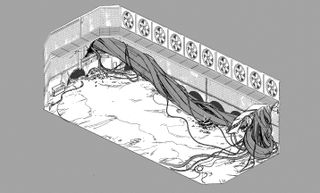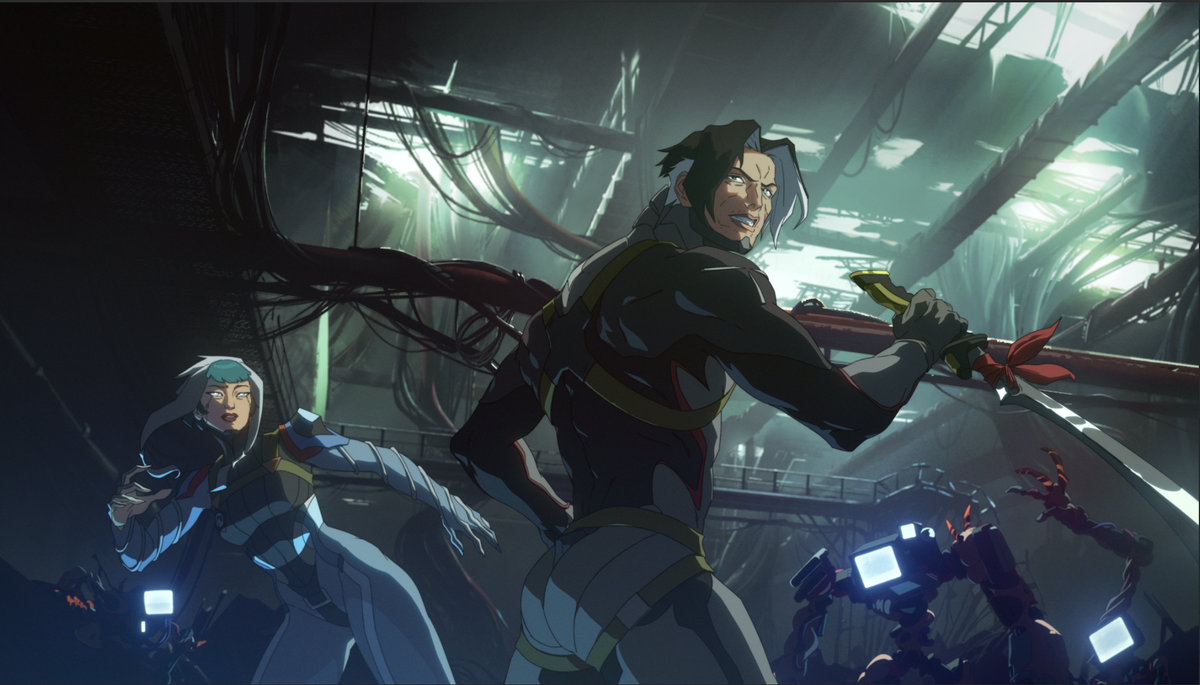Boutique animation studio THE LINE has applied its love of anime to refreshing the world of video game Warframe, with the creation of a short film that shows players what they can expect from the game’s risky direction. Risky because in 10 years Warframe has never undergone a stylistic change of direction quite like the recently released 1999 narrative update.
With a specialism in both 3D animation and 2D animation styles, as well as a passion for the past, The LINE’s 1999 project neatly anticipates the big nostalgia art trend for 2025. While developer Digital Extremes worked on the game’s new content, that includes a visual makeover, new story content and gameplay ideas, animation studio THE LINE created the 90s anime short, called The Hex.
Drawing on a love of Ghost in the Shell and 90s aesthetic the animators crafted a punchy short that recalls the heyday of anime as well as serving as a hype film for the new Warframe release. Here I speak with THE LINE’s veteran animation director, Venla Linna, who explains how those influences came together, and how Digital Extremes’ vision was interpreted.
“Exploring a world like Warframe through 2D animation was an incredibly fulfilling experience,” says Venla Linna. “We were immediately drawn to the vastness of the universe that has been built, the depth of its storytelling, and the unapologetic stylishness of its characters.”
Read my interview with Venla Linna below, but if you want to get into animation read our guides to the best animation software and the best 2D animation software.
CB: Were there particular 90s anime studios that influenced the art direction?
Venla Linna: It wouldn’t be so much particular studios, but particular directors, or films in this case – Ghost in the Shell and Jin-roh Wolf Brigade in particular: not only in mood, but even down to the way they handled colour and grade.
CB: Did the change in tone require any significant changes because of the 90s influence?
VL: Not from our side – I think both sides of the collaboration (as in The Line and Digital Extremes) were incredibly aligned from the start down to the references, so I found all the material already spoke to that when I received it.
Perhaps the only aspect that we more significantly changed on our side was to pull back or simplify some elements to give more space to the characters (because it’s not a lot of time, of course) as well as signify that this is all happening before the events of the upcoming game update.
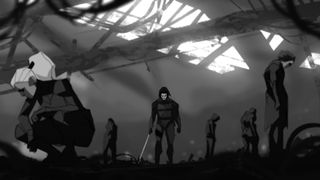
CB: How did you balance the new influences with Warframe’s existing art style and assets?
VL: We were really in sync about the tone – 1999 is a bit of a fresh direction for DE themselves, and they came to us already with a huge amount of contemporary references. It wasn’t a challenge to get aligned as we were all 90’s kids, except for my ridiculously young production manager Michaela Dede.
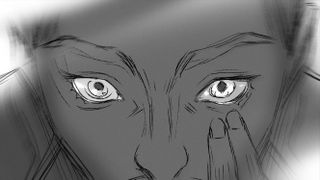
CB: Were there any iconic visual motifs or techniques from 90s anime that you consciously considered?
VL: For me the type of 90’s anime I like was heavily influenced by live action films, so I wanted to emulate that drama with the framing of shots, the way things breathed. We gave them soft, cold glows in the light with a little subsurface scattering, reminiscent of Ghost in the Shell. We toned down the contrast to give it a little “age”. We even did a little strobe light sequence – reminiscent of the rave sequence in Blade.
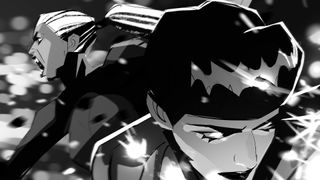
CB: What tools or techniques did you use to achieve a nostalgic style?
VL: Desaturate, desaturate, throw some light bloom on it and grain. That honestly was the trick. Our art director Simon Dumonceau made a gorgeous colourscript that leaned heavily into greys and greens in the underground, and cold pinks and blues in the Mall sections – the colours themselves needed to be designed a little desaturated down to the modelsheets in order to achieve this look.
CB: What challenges did you encounter?
VL: The characters were not easy to draw! Masha Moran’s designs are absolutely beautiful, and we run into this particular issue every time: no one draws exactly the same. There are a few key animators and designers that become chameleons of style after a few years, but most people cannot stop their natural instinct leaking through – it’s both a blessing and a curse, because frankly, I’m quite picky. Having a good character layout to start the animation with from Masha helped a lot, and after a few tweaks I think we reached a pretty great consistency.
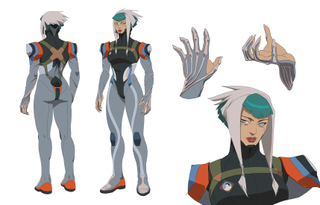
CB: How did the design of Warframe’s characters fit into the anime look?
VL: I think they were made to be drawn! I was, either way, striving for a style that remained more naturalistic both as a style choice and in order to keep a likeness that would not oversimplify character specific facial features. It’s a huge pet peeve of mine when a style homogenises the characters – and this was the first time we were giving these guys faces, so it was extra important to make them look like themselves.
Beyond that, obviously we carefully streamlined the designs for drawing in order to preserve line-mileage and wrists in the long-run – keeping the essentials of their features. They’re quite complex designs – even our versions didn’t turn out THAT simple.
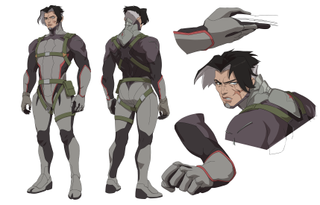
CB: Is there any particular element of the design that you’re most proud of?
It has to be the faces! High-fidelity, high detail is a risk, always. The more lines and complexity you introduce the higher the chance someone can’t do it. My assist team were absolute troopers and completely brought it home on this one despite the challenge. There’s really nothing I would change about it – I’m super happy with the whole team and our result.
